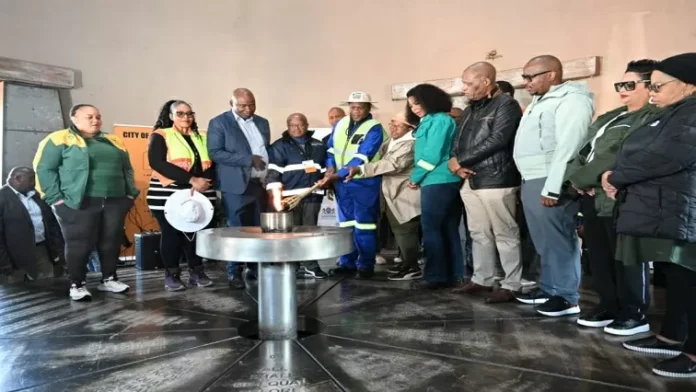The Freedom Charter was a historic document that was adopted 70 years ago on June 26, 1955 at the Congress of the People in Kliptown, Soweto. This momentous event marked a significant turning point in the struggle for freedom and equality in South Africa. The adoption of the Freedom Charter was a symbol of hope and determination for the oppressed majority, and it continues to be a cornerstone of our democracy to this day.
The Congress of the People was a gathering of over 3,000 people from all walks of life, representing various organizations and communities from across South Africa. The delegates came together with a common goal – to draft a document that would serve as a blueprint for a free and just South Africa. The Freedom Charter was the result of this collective effort and it still stands as a testament to the resilience and unity of the people of South Africa.
The Freedom Charter is a powerful document that outlines the aspirations and demands of the South African people. It begins with the iconic words, “We, the People of South Africa, declare for all our country and the world to know: that South Africa belongs to all who live in it, black and white, and that no government can justly claim authority unless it is based on the will of all the people.” These words are a reminder of the inclusive and egalitarian vision that the Charter represents.
The Charter consists of 10 clauses that cover a wide range of issues, from political and economic rights to social and cultural rights. It calls for a non-racial, democratic society where all citizens have equal rights and opportunities. It also advocates for the redistribution of land, wealth, and opportunities to ensure a more equitable society. The Charter envisions a South Africa where education, healthcare, and housing are accessible to all, regardless of race or social status.
One of the most significant aspects of the Freedom Charter is that it was drafted by the people, for the people. It was a document created by and for the oppressed majority, with the aim of dismantling the oppressive system of apartheid. The Charter was a product of the collective wisdom and experiences of the people, making it a truly representative and inclusive document.
The adoption of the Freedom Charter was a powerful statement against the apartheid regime. It was a bold declaration of the people’s determination to fight for their rights and freedom. The Congress of the People was held in defiance of the government, as it was deemed illegal for people of different races to gather together. This act of defiance showed the unwavering commitment of the people to the cause of liberation.
The Freedom Charter continues to hold immense significance in South African society. It has inspired generations of activists and has been a guiding light in the struggle for freedom and democracy. The Charter has also had a profound impact on the drafting of the South African Constitution, which is considered one of the most progressive and inclusive constitutions in the world.
The adoption of the Freedom Charter was a pivotal moment in South African history. It was a milestone in the struggle for freedom and equality, and it paved the way for the birth of a new South Africa. Today, as we celebrate 70 years since its adoption, we are reminded of the sacrifices and struggles of those who came before us. We are also reminded of the work that still needs to be done to fully realize the vision of the Freedom Charter.
As we reflect on the significance of this momentous event, let us also remember that the Freedom Charter is not just a document, but a call to action. It is a reminder that the struggle for equality and justice is ongoing and that it is the responsibility of every South African to uphold the values and principles of the Charter. Let us continue to work towards a South Africa that truly belongs to all who live in it, and let us never forget the power of unity and determination in the face of oppression.

